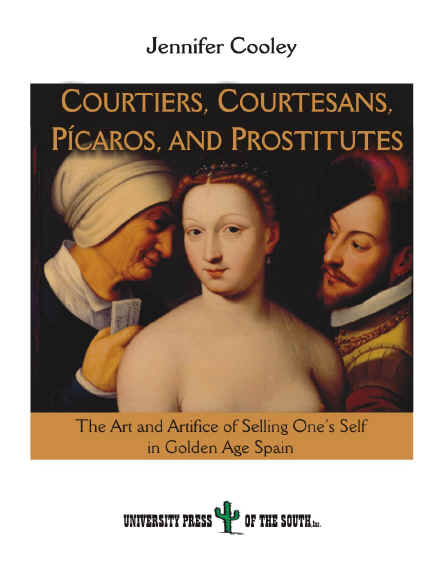
By
Jennifer Cooley
(University of Northern Iowa, USA)
ISBN: 978-1-889431-77-X
This work examines the place of literature in Golden Age Spain by exploring the implications of the shifting means of evaluating the worth of the individual in a culture bent on preserving traditional societal divisions. A blend of textual analysis of canonical literature and theoretical concerns, the examination of traditionally divergent sets of literary genres explores two disparate worldviews, the cultural elite versus the marginalized. The book analyzes questions of social mobility and linguistic performance: how battles for the acquisition and preservation of status lead to the ultimate revelation of the ‘self’s’ verbal and intellectual skills as merely a ruse. The emergence of a ‘self’ defined by its success in social exchange then becomes a parallel for commercial exchange in a developing capitalist society.
Jennifer Cooley received her Ph.D. in Spanish Literature with an emphasis on Golden Age Narrative at the University of Iowa. Currently, she is Associate Professor in the Department of Modern Languages at the University of Northern Iowa.

